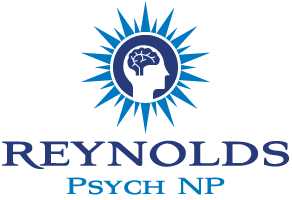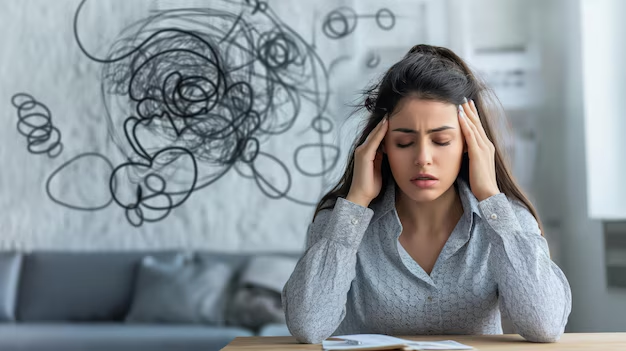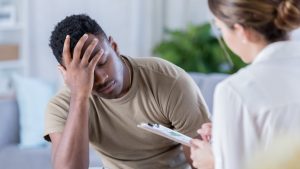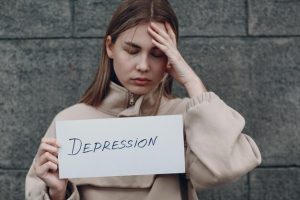Anxiety is one of the most common mental health concerns worldwide. The World Health Organization (WHO) estimates that more than 301 million people live with anxiety disorders. The symptoms can range from constant worry and overthinking to physical signs like rapid heartbeat, sweating, and restlessness.
For many, medication is an effective option, but not everyone wants or needs it. The good news is that there are proven, natural strategies that can help reduce anxiety symptoms and improve quality of life. This guide explains in detail how to manage anxiety without medication, using science-based methods that are safe, practical, and easy to understand.
Understanding Anxiety and Its Effects
When you experience anxiety, your brain activates the “fight or flight” response. The amygdala, which processes fear, signals your body to release stress hormones such as cortisol and adrenaline. These hormones increase heart rate, tighten muscles, and sharpen alertness. While this response is useful in emergencies, in anxiety disorders it occurs too often or without real danger.
Learning how to calm this response naturally is the key to managing anxiety without relying on medication.
Cognitive-Behavioral Therapy (CBT)
Cognitive-Behavioral Therapy (CBT) is one of the most effective tools for treating anxiety naturally. It helps people identify unhelpful thought patterns and replace them with realistic and balanced thinking.
- Example: If you often think “Something bad will definitely happen if I speak in public,” CBT teaches you to challenge that belief and replace it with “I may feel nervous, but I am prepared and capable.”
- Over time, this retrains the brain to respond more calmly to stressful situations.
Research published by the American Psychological Association shows that 60 to 80 percent of people with anxiety improve significantly with CBT.
Mindfulness and Meditation
Mindfulness means paying attention to the present moment instead of worrying about the future or reliving the past. Meditation trains the brain to observe thoughts without judgment, which reduces the intensity of anxious feelings.
Evidence: A study from Harvard University found that an eight-week mindfulness program reduced activity in the parts of the brain that trigger fear and anxiety.
Simple practice to try:
- Sit comfortably and close your eyes.
- Focus on your breath as it enters and leaves your body.
- When your mind wanders, gently return your focus to breathing.
Just a few minutes each day can lower stress levels and improve emotional stability.
Exercise as a Natural Stress Reliever
Exercise is one of the most powerful and natural ways to reduce anxiety. Physical activity increases endorphins, the brain’s natural chemicals that improve mood, while lowering stress hormones.
- The Anxiety and Depression Association of America (ADAA) recommends at least 30 minutes of moderate exercise three to five times a week for anxiety relief.
- Activities such as walking, swimming, yoga, or cycling all provide benefits.
- Even short sessions, such as a 10-minute walk, can calm racing thoughts and release muscle tension.
Exercise also improves sleep, which plays a direct role in anxiety management.
Nutrition and Gut Health
What you eat has a major impact on your mental health. The gut and brain communicate through the gut-brain axis, meaning your diet can either worsen or reduce anxiety symptoms.
Helpful foods include:
- Magnesium-rich foods like spinach, almonds, and pumpkin seeds to calm the nervous system.
- Omega-3 fatty acids found in salmon, walnuts, and flaxseeds to support brain function.
- Probiotics in yogurt, kefir, and fermented foods to improve gut balance.
- Vitamin D from sunlight or fortified foods to regulate mood.
Foods to limit:
- Caffeine, which can trigger a racing heart and mimic panic.
- Alcohol, which may provide short-term relaxation but worsens long-term anxiety.
- Processed sugar, which leads to energy crashes and irritability.
Eating a balanced diet provides steady energy and helps the brain stay resilient to stress.
Breathing Techniques for Quick Relief
Breathing exercises are simple tools that can calm the nervous system in minutes. When you are anxious, you’re breathing often becomes shallow, which tells the brain that danger is near. Deep breathing reverses this message and restores balance.
Techniques to try:
- Box breathing: Inhale for four seconds, hold for four, exhale for four, hold for four.
- 4-7-8 breathing: Inhale for four seconds, hold for seven, exhale for eight.
- Diaphragmatic breathing: Place your hand on your stomach and breathe deeply until it rises with each inhale.
Practicing these techniques regularly makes it easier to control anxiety during stressful situations.
Improving Sleep Hygiene
Anxiety often disrupts sleep, and lack of sleep makes anxiety worse. Creating healthy sleep habits is one of the best ways to manage anxiety naturally.
Research in Nature Human Behaviour shows that even one night of poor sleep increases anxiety by 30 percent.
Tips for better sleep:
- Stick to the same bedtime and wake-up time daily.
- Limit screen use at least one hour before bed.
- Keep your bedroom dark, quiet, and cool.
- Use calming activities before bed, such as reading or light stretching.
Restorative sleep helps regulate mood and reduces anxious feelings.
Lifestyle Adjustments
Small daily choices can build long-term resilience against anxiety.
- Reduce exposure to stressful news and social media.
- Break large tasks into smaller, manageable steps.
- Connect with supportive friends and family.
- Write in a journal to process emotions and release tension.
These habits are simple but highly effective when practiced consistently.
When to Seek Professional Help
While natural methods are very effective, anxiety can sometimes remain overwhelming. In such cases, professional support is important. Therapists, counselors, and support groups provide structure and accountability for applying these techniques.
If symptoms are severe, medication may still be an option.
Final Thoughts
Learning how to manage anxiety without medication is possible with the right strategies. Cognitive therapy, mindfulness, exercise, good nutrition, breathing techniques, quality sleep, and lifestyle adjustments can all reduce anxiety and improve mental well-being.
However, if your symptoms are intense or do not improve with these methods, professional treatment may be needed. If you would like to explore whether medication could be helpful for you, contact us today for expert guidance and support.







